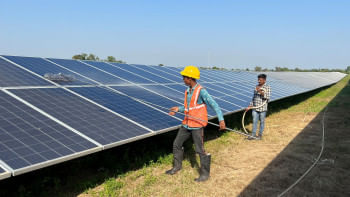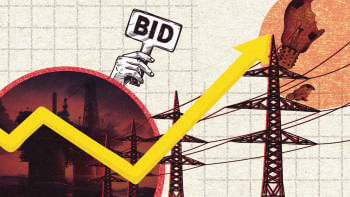Raising energy prices can’t be our first resort

We are alarmed by the government's decision to follow up its March energy price hike with three more raises this year, especially at a time when inflation is at its highest in more than a decade. After raising energy prices several times last year, the government again increased prices in March. Worryingly still, prices are likely to be increased in four rounds next year as the government plans to withdraw energy subsidies altogether in accordance with the IMF's $4.7 billion loan condition.
The issue here, as we understand it, is the government's poor revenue collection. As it struggles to increase revenue, it feels it has no other option but to cut back costs. But repeatedly increasing power prices will badly affect businesses, which are already complaining about having to struggle to keep up with foreign competitors amid escalating costs. And since power prices will further decrease people's disposable income, domestic demand will continue to drop, further adding to their woes. This may significantly worsen the economy and negatively impact growth.
Consumers, too, will be hammered by the price hikes. As power prices together with living costs continue to rise, while incomes remain stagnant, people will have no alternative but to further cut expenditures. And while higher power prices will affect all, it will hit the poor much harder. Given that lower-income groups have already reduced consumption of even essential food items, how are they supposed to be able to pay higher electricity bills? Did the government take all these factors into consideration when taking such an untimely decision?
To cut back on costs, the government should have renegotiated with the private power plants to reduce its absurd capacity charge payments—which are reportedly taking up 81 percent of the energy subsidies. But instead of doing that, its decision to put the burden on businesses and consumers is totally ridiculous. This just goes to show the lack of transparency and accountability in the sector which has had an abysmal impact on the economy.
If the government wants to do away with subsidies, it should start by removing all capacity charge payments to private power plants first. It's decision to do otherwise shows how policymaking has been captured by special interests. The government must stop surrendering to vested interests and reverse its decision. Power price hike is only acceptable if the government fixes all such issues draining its coffers and bring much-needed transparency and accountability in the sector.


 For all latest news, follow The Daily Star's Google News channel.
For all latest news, follow The Daily Star's Google News channel. 











Comments